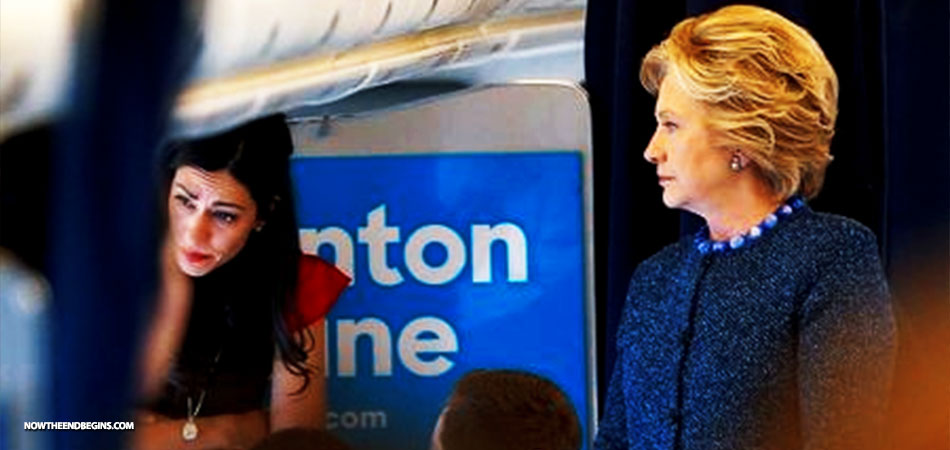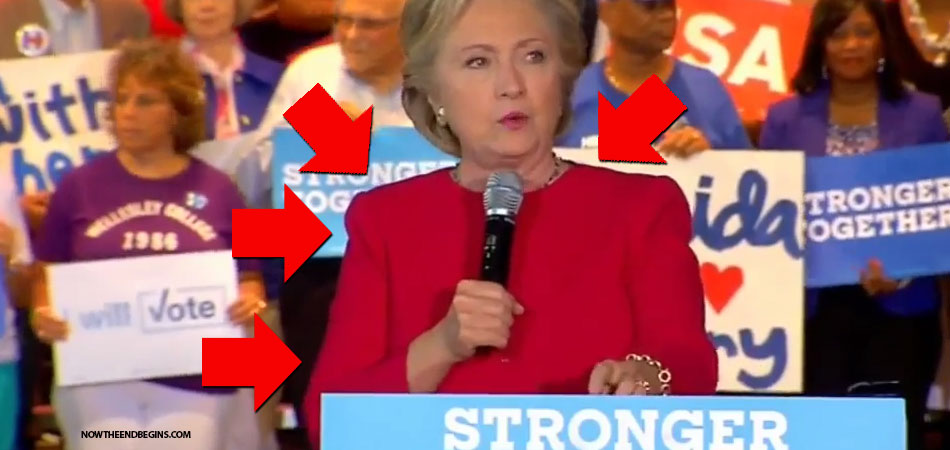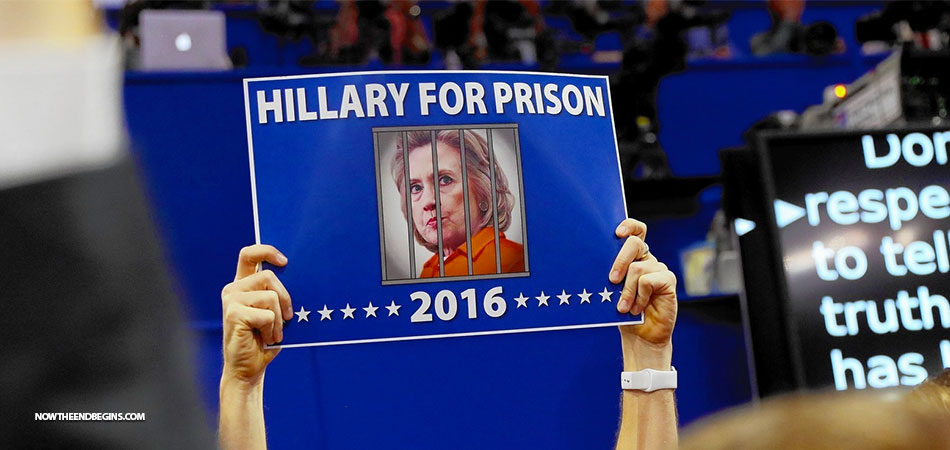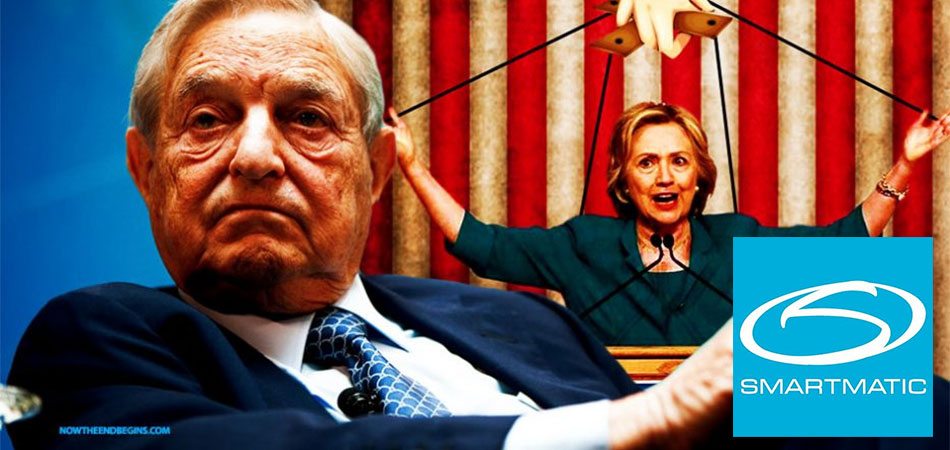Frankenfood
Michelle Obama Teams With Frankenfood Producer Monsanto To Sell GMO To Children
In announcing her support for Monsanto and GMOs for children, the First Lady declared “When I see a company like Monsanto launch an initiative like this, I feel more hopeful than ever before…”

All part of the Obama agenda to collapse America
EDITOR’S NOTE: This story, as originally published, is thought to have been put out there by the Daily Leak as satire. But we leave this story up to illustrate the deadly connection between Monsanto and the Obama administration that has been verified.
“The popular agriculture company Monsanto is partnering with First Lady Michelle Obama to promote nutritional foods for kids,” reports DailyLeak.org. (1) “According to reports from the Associated Press, Monsanto will spend $50 million over five years on a campaign to market ‘healthy’ genetically modified food to children.”
“It’s not clear how a company that’s primarily known for producing seeds and herbicides for farmers is going to nudge children into eating foods the first lady thinks they should be eating,” reports EAGNews.com.
“Details of this deal have been sketchy, perhaps intentionally so. After all, the unholy alliance of Big Government and Big Business is one definition of fascism.”
The “final solution” sellout of the White House?
Michelle Obama once promoted fresh garden vegetables but never quite pushed for organics. With this Monsanto announcement, she’s now reversed all progress on healthy foods and has teamed up with the corporation that produces corn seeds containing deadly toxins linked to massive cancer tumors in rat experiments.
The chemical sprayed on GM crops — glyphosate — is also linked to wildly destructive environmental effects as well as huge increases in human cancer.

Bill Gates
AGENDA 2030: The USDA Approves Bill Gates Lab-Grown ‘Frankenfood’ Meat As Our Global Society Lurches Ever Forward Into A Dystopian Abyss

The US Department of Agriculture approved the sale of ‘cultivated’ or lab-grown ‘Frankenfood’ meat backed by Bill Gates and Agenda 2030 to American consumers on Wednesday, paving the way for what manufactures say is a new avenue for food sourcing and distribution.
Phase 2 of the Great Reset continues to go forward quite nicely as key elements of the soon-coming UN Agenda 2030 are locking into place. One of the things so despised by our New World Order masters are things, like food items, that God has created for us to eat and enjoy, are being replaced with disgusting Frankenfood made in a test tube. What’s on the menu in the kingdom of Antichrist? Test-tube chicken, test-tube steak, cricket flour and all sorts of creeping things. When you ‘follow the science’ it leads you straight to ‘meat in a test-tube’ companies like Upside Foods that are backed and funded by Bill Gates. Pay a visit to our Frankenfood archives and see for yourself what’s going on.
“Now the Spirit speaketh expressly, that in the latter times some shall depart from the faith, giving heed to seducing spirits, and doctrines of devils; Speaking lies in hypocrisy; having their conscience seared with a hot iron; Forbidding to marry, and commanding to abstain from meats, which God hath created to be received with thanksgiving of them which believe and know the truth. For every creature of God is good, and nothing to be refused, if it be received with thanksgiving: For it is sanctified by the word of God and prayer.” 1 Timothy 4:1-5 (KJB)
Bill Gates loves fake things, artificial things, and has spent much of his fortune on them. Back in 2021, Gates said ” I don’t think the poorest 80 countries will be eating synthetic meat. I do think all rich countries should move to 100% synthetic beef. You can get used to the taste difference, and the claim is they’re going to make it taste even better over time. Eventually, that green premium is modest enough that you can sort of change the behavior of people or use regulation to totally shift the demand.” Bill Gates has invested heavily in Frankenfood like fake meat and fake corn. Soon, your favorite restaurant will be serving it because the cost of it will be so much lower, and eventually there will be no getting away from it. Like we’ve been telling you, the lockdowns and the fake vaccine were only Phase 1, and right now we are moving rapidly through Phase 2. Let’s hope the Pretribulation Rapture happens before Phase 3, because that will truly be a nightmare.
Lab-grown chicken, meat could soon find its way onto American plates after USDA approval
FROM USA TODAY: Two companies, Upside Foods and GOOD Meat, were both given the rubber stamp to begin manufacturing and selling their “cultivated chicken” products, also known as “cultured” chicken, which are produced using animal cells grown in a lab to create meat without directly slaughtering an animal.
Companies and advocates working in the meat-alternative space celebrated the decision, hailing lab-grown protein as a viable means of addressing environmental and ethical concerns linked to the traditional mass-production of meat.
The Good Food Institute, a non-profit think tank focused on advancements in the alternative protein industry, called the news “groundbreaking” in a statement, citing research published in The International Journal of Life Cycle Assessment that expects cultivated meat to be nearly three times more efficient, with the potential to reduce the carbon footprint by 92 percent, land use by 90 percent, and water use by 66 percent compared to conventional beef production.
GFI president Bruce Friedrich called the approval a breakthrough that is another step toward enabling “the world to diversify protein production while slashing emissions, increasing food security, reducing risks to public health, and freeing up lands and waters for restoration and recovery.” READ MORE
Now The End Begins is your front line defense against the rising tide of darkness in the last Days before the Rapture of the Church
- HOW TO DONATE: Click here to view our WayGiver Funding page
Please continue to pray for us, and for wisdom for me especially, as we continue taking steps to print the NTEB branded King James Bible for our free Bible and Bibles Behind Bars program. It is exciting and intimidating at the same time. If the Lord has prospered your financially, we ask you to donate to help us continue to send out free Bibles at this level, and even higher than we are at the moment. It takes a lot of prayer, and a lot of resources to do all this. Praise the Lord we are doing it, all of us together, labouring in the Lord’s harvest field. TO THE FIGHT!!!
When you contribute to this fundraising effort, you are helping us to do what the Lord called us to do. The money you send in goes primarily to the overall daily operations of this site. When people ask for Bibles, we send them out at no charge. When people write in and say how much they would like gospel tracts but cannot afford them, we send them a box at no cost to them for either the tracts or the shipping, no matter where they are in the world. We have a Gospel Billboard program. We are now broadcasting Bible studies, Podcasts and a Sunday Service 5 times a week, thanks to your generous donations. All this is possible because YOU pray for us, YOU support us, and YOU give so we can continue growing.
But whatever you do, don’t do nothing. Time is short and we need your help right now. The Lord has given us an open door with a tremendous ‘course’ for us to fulfill that will create an excellent experience at the Judgement Seat of Christ. Please pray for our efforts, and if the Lord leads you to donate, be as generous as possible. The war is REAL, the battle HOT and the time is SHORT…TO THE FIGHT!!!
“Looking for that blessed hope, and the glorious appearing of the great God and our Saviour Jesus Christ;” Titus 2:13 (KJB)
“Thank you very much!” – Geoffrey, editor-in-chief, NTEB
End Times
The United Nations Has Decreed That We Must Start Consuming Insects As Food, Better Check Your Nutrition Labels To See If You’re Eating Cricket Flour

The United Nations 2030 Agenda For Sustainable Development has determined that for the planet to survive, we need to start eating bugs, insects and cricket flour.
Here’s a fun fact, in accordance with the United Nations Agenda 2030 mandate for a sustainable global system, one of the new things you will start seeing in the products you purchase will be foodstuffs made from bugs and insects. If the package of what you’re eating says ‘sustainable’, it’s highly likely you’re eating bugs. Welcome to the United Nations Agenda 2030 for Sustainable Living, have you worked up an appetite yet?
“And every creeping thing that creepeth upon the earth shall be an abomination; it shall not be eaten.” Leviticus 11:41 (KJB)
The United Nations web site says: “This Agenda is a plan of action for people, planet and prosperity. It also seeks to strengthen universal peace in larger freedom. We are determined to protect the planet from degradation, including through sustainable consumption and production, sustainably managing its natural resources and taking urgent action on climate change, so that it can support the needs of the present and future generations.” So what if your Doritos have been made with cricket flour? You won’t taste the difference. So what if the UN decrees you can no longer eat meat, but a lab-grown, frankenfood substitute instead? Don’t be such a baby, and after awhile, you’ll enjoy eating rats and roaches while the elites dine on Porterhouse and lobster. War is peace, baby.
The Unbelievable Ways Dried Crickets Are Turning Up in Your Food
FROM PREVENTION: Bugs are trending…all over my office. I’m buried in samples of foods made from crickets: cricket cookies, tortilla chips, protein bars, even all-purpose flour that apparently has nutty undertones and works well in banana bread. I’m intrigued and slightly weirded out, but most of all I’m wondering: Are bugs in food just a fleeting fad for the Western world, a nostalgic nod to more primeval populations who have been eating insects for centuries? Or does it have the potential to become part of the American palate, akin to sushi in the 1970s? I decide to investigate.
The real reason they want you eating bugs…it’s not to save the planet, it’s to make you sick pic.twitter.com/HIVBDf0RA5
— Trish (@Trish_NI) August 15, 2022
While eating bugs is common in Asia, Africa, and Latin America, it wasn’t until last May that the Western world—and, naturally, a bunch of start-ups—began taking edible insects seriously. That’s when the UN’s Food and Agriculture Organization released a report stating that by 2050, the world will need to feed 2 billion extra people, given the jump in population growth. One of its solutions: Eat more protein-rich bugs, which, if they become part of the mainstream global diet, could greatly affect the environment. Crickets emit 100 times fewer greenhouse gases than cattle, and raising a pound of crickets requires 1 gallon of water and 2 pounds of feed, while raising a pound of beef requires 2,000 gallons of water and 25 pounds of feed.
Cheap food is cool. But, uh, how do we make insects part of the mainstream in the US, where we’d much rather spray them with poison than sauté them in a pan? That’s where creative start-ups come in. Earlier this year, a woman named Megan Miller co-founded Bitty Foods in San Francisco, selling grain-free, cricket-flour-based cookies in flavors like orange-ginger and chocolate-cardamom. She says the cookies are a “gateway product,” meaning their sugary form can help disguise the fact that you’re eating bugs (and the gateway is apparently working, as I’m now on my third cookie since starting to write this article). “The key is turning crickets into something familiar,” Miller says. “So we slow roast them and mill them into a powder that can be incorporated into basically anything.” READ MORE
Now The End Begins is your front line defense against the rising tide of darkness in the last Days before the Rapture of the Church
- HOW TO DONATE: Click here to view our WayGiver Funding page
When you contribute to this fundraising effort, you are helping us to do what the Lord called us to do. The money you send in goes primarily to the overall daily operations of this site. When people ask for Bibles, we send them out at no charge. When people write in and say how much they would like gospel tracts but cannot afford them, we send them a box at no cost to them for either the tracts or the shipping, no matter where they are in the world. Even all the way to South Africa. We even restarted our weekly radio Bible study on Sunday nights again, thanks to your generous donations. All this is possible because YOU pray for us, YOU support us, and YOU give so we can continue growing.
But whatever you do, don’t do nothing. Time is short and we need your help right now. The Lord has given us an open door with a tremendous ‘course’ for us to fulfill that will create an excellent experience at the Judgement Seat of Christ. Please pray for our efforts, and if the Lord leads you to donate, be as generous as possible. The war is REAL, the battle HOT and the time is SHORT…TO THE FIGHT!!!
“Looking for that blessed hope, and the glorious appearing of the great God and our Saviour Jesus Christ;” Titus 2:13 (KJB)
“Thank you very much!” – Geoffrey, editor-in-chief, NTEB
- HOW TO DONATE: Click here to view our WayGiver Funding page
Frankenfood
McDonald’s Launches Massive Anti-Pink Slime Campaign To Kill Frankenfood Rumors
Hurt by years of bad publicity amid claims of ‘pink slime’ chicken nuggets and Frankenfood, the fast food giant is pulling back its veil of production line secrecy to bring more transparency to its customers.

The world’s biggest hamburger chain has been hit by public perception it serves Frankenfood
McDonald’s has taken the unprecedented step of allowing cameras inside one of its secret food factory’s for the first time in a bid to end the rumors and urban myths about how its Happy Meals and Big Macs are made.
Hurt by years of bad publicity amid claims of ‘pink slime’ chicken nuggets and Frankenfood, the fast food giant is pulling back its veil of production line secrecy to bring more transparency to its customers.

Fighting back: The world’s biggest hamburger chain is confronting unappetizing questions as part of a U.S. campaign to beat back perceptions that it serves Frankenfood
The dramatic move is all part McDonald’s new campaign in which it will bravely invite members of the public to submit any questions they have always wanted to know the answers to about their food.
The world’s biggest hamburger chain is confronting unappetizing questions as part of a U.S. campaign to beat back perceptions that it serves Frankenfood. The company has run similar campaigns in Canada and Australia and said Monday it’s bringing the effort to its flagship market.
For its latest campaign, among the first issues McDonald’s addresses are widely circulated online images and videos that show its burgers staying in tact after several weeks or even years. On its webpage, McDonald’s says that’s likely because the food has dehydrated, and that food needs moisture to form mold.
On its website, the company denies that it uses ‘pink slime’ in chicken nuggets, saying ‘No, our Chicken McNuggets do not contain what some people call ‘pink slime’ or ‘pink goop.’
‘We’ve seen the photo of ‘pink goop’ or ‘pink slime’ in association with McDonald’s. Let’s set the record straight: this image in connection with McDonald’s is a myth. In fact, we don’t know where it came from, but it’s not our food. The photo is not a representation of how we create our Chicken McNuggets, or for that matter, any item on our menu.’
However, elsewhere McDonald’s admits on the site that ‘We use a small amount of an anti-foaming agent, dimethylpolysiloxane, in the oil we use to cook our Chicken McNuggets.’
-

 George Soros9 years ago
George Soros9 years agoProof Of George Soros Nazi Past Finally Comes To Light With Discovery Of Forgotten Interview
-

 Election 20169 years ago
Election 20169 years agoDEAD POOL DIVA: Huma Abedin Kept Those Hillary Emails That The FBI Found In A Folder Marked ‘Life Insurance’
-

 Election 20169 years ago
Election 20169 years agoCrooked Hillary Campaign Used A Green Screen At Today’s Low Turnout Rally In Coconut Creek FL
-

 George Soros9 years ago
George Soros9 years agoSORE LOSER: George Soros Declares War On America As Violent MoveOn.Org Protests Fill The Streets
-

 Donald Trump9 years ago
Donald Trump9 years agoDonald Trump Will Be 70 Years, 7 Months And 7 Days Old On First Full Day In Office As President
-

 Headline News9 years ago
Headline News9 years agoIf Hillary Is Not Guilty, Then Why Are Her Supporters Asking Obama To Pardon Her? Hmm…
-

 Election 20169 years ago
Election 20169 years agoWikiLeaks Shows George Soros Controlling Vote With 16 States Using SmartMatic Voting Machines
-

 End Times9 years ago
End Times9 years agoFalse Teacher Beth Moore Endorses The Late Term Partial-Birth Abortion Candidate Crooked Hillary













































































